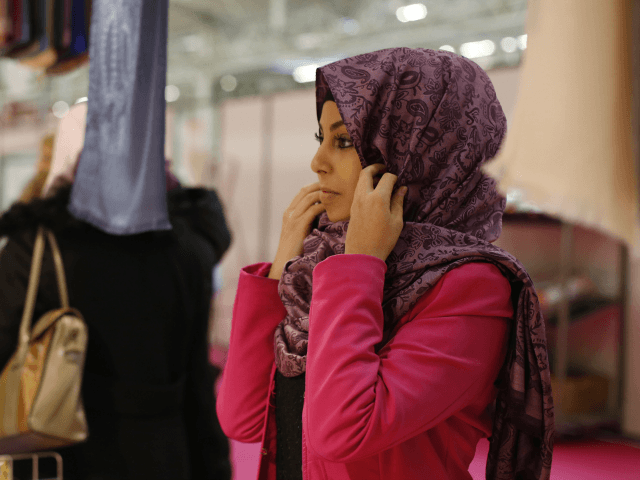An Advocate General at the European Court of Justice (ECJ) has said that it is possible for companies to institute a headscarf ban if it is done under a policy ensuring “religious and ideological neutrality”.
The opinion on the headscarf ban – which is currently only “advisory” – was delivered yesterday by Germany’s Advocate General at the ECJ, Professor Juliane Kokott.
The final judgment on the case will come later this year, but the ECJ commonly follows Advocates General’s opinions which are considered to be independent and impartial and are regularly sought before the actual judges deliberate on high-profile cases.
The specifics involve Samira Achbita, a practicing Muslim from Belgium who worked as a receptionist for G4S Secure Solutions. Ms. Achbita worked for three years for the company before insisting she should be allowed to go to work wearing an Islamic headscarf. As a result she was dismissed because of the company’s policy banning the wearing of visible religious, political and philosophical symbols.
Backed by Centre for Equal Opportunities and Combatting Racism — a Belgian government agency — Ms. Achbita sued for damages but lost her case in the first two tiers of Belgian courts. With her appeal against those losses now before Belgium’s main court of last resort — the Court of Cassation — the ECJ has been asked to clarify the issue in terms of European law before a final decision is reached.
As the Financial Times reports, cases before the ECJ used to be limited to trade and competition disputes. However, since the Lisbon Treaty expanded the court’s remit in 2009 to include matters such as security and fundamental rights, it now also pronounces on social issues with decisions that are binding upon national governments. Ms. Achbita’s case is an example of this.
The Advocate General dismissed suggestions of unfair discrimination if a Muslim is prohibited from wearing a headscarf, so long as the company in question pursues a proportionately applied “legitimate policy of religious and ideological neutrality”. In such circumstances, although it may be classed “indirect discrimination based on religion” it could still be justified.
Most importantly, there is “no less favourable treatment based on religion” so long as the ban is not based “on stereotypes or prejudices against one or more particular religions or against religious beliefs in general.” Professor Kokott’s opinion added:
While an employee cannot ‘leave’ his sex, skin colour, ethnicity, sexual orientation, age or disability ‘at the door’ upon entering his employer’s premises, he may be expected to moderate the exercise of his religion in the workplace, be this in relation to religious practices, religiously motivated behaviour or (as in the present case) his clothing.
In terms of proportionality, the opinion stated that would be based on “the size and conspicuousness of the religious symbol, the nature of Ms Achbita’s activity and the context in which she must perform her activity, as well as the national identity of Belgium.”
In this case the company’s services are “characterised by constant face-to-face contact with external individuals” which has “a defining impact not only on the image of G4S itself but also and primarily on the public image of its customers.” As such the discrimination can be justified.
It is understood that the reference to “national identity” may give countries with a constitutional commitment to secularism, like France, freedom to enforce stricter rules on religious items than other member states.
As Breitbart London previously reported, last November the European Court of Human Rights upheld France’s ban on public sector employees wearing headscarves and other religious symbols, ruling it did not violate freedom of religion in a country where the principles of secularism and strict religious neutrality are specifically set out in the constitution.
This week’s ECJ Opinion was delivered on the same day that the Dutch judiciary announced its ban on headscarves and other clothing indicating religious beliefs will remain in place for judges and clerks. It said:
Judges and clerks wear a gown during hearings… The gown symbolises the judiciary’s impartiality and independence… It also gives citizens confidence that the background or personal views of the judges play no role in the assessment of the case…
The gown policy is strictly enforced, and judges and clerks cannot combine them with signs of their belief or personal philosophy, such as a yarmulke, a scarf or a cross.

COMMENTS
Please let us know if you're having issues with commenting.